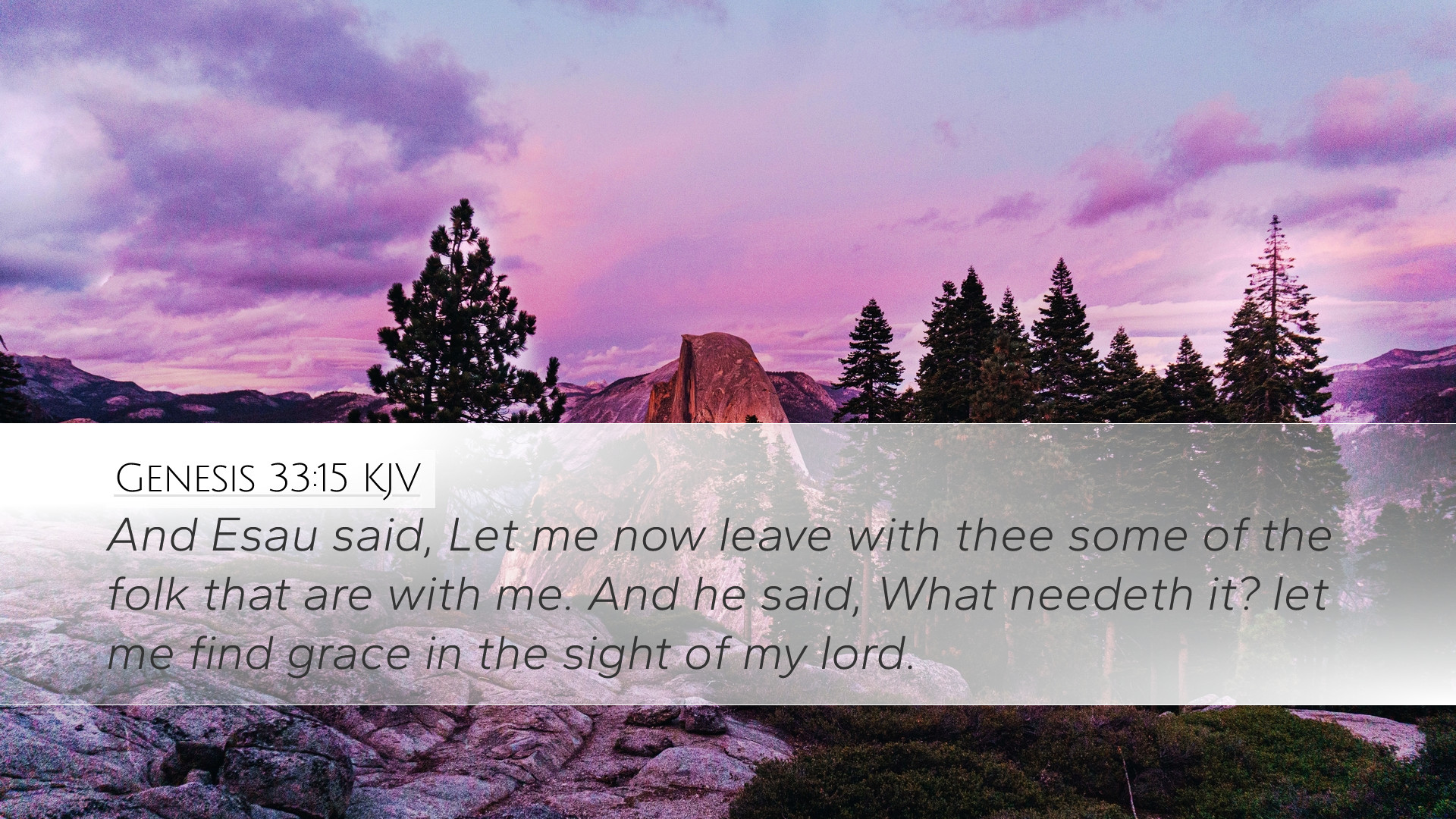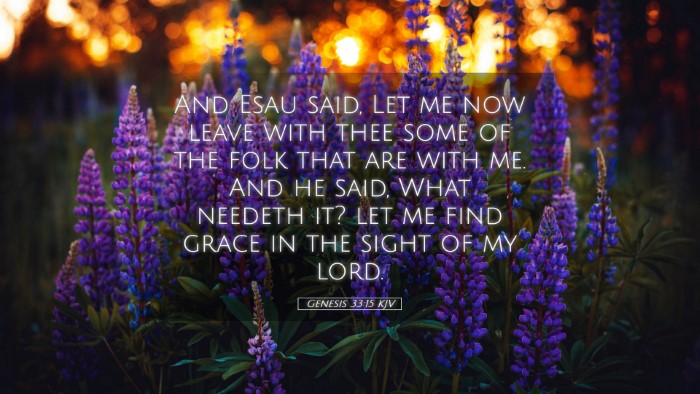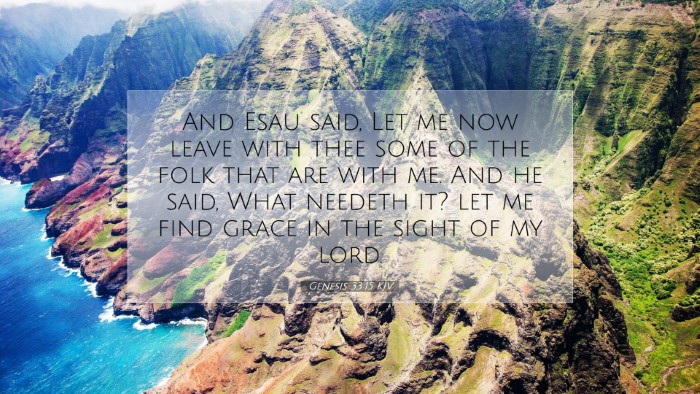Commentary on Genesis 33:15
Text of Genesis 33:15 (KJV): "And Esau said, Let me now leave with thee some of the folk that are with me. And he said, What needeth it? let me find grace in the sight of my lord."
Introduction
This passage occurs at a crucial juncture in the narrative of Jacob and Esau. After years of estrangement, marked by deceit and hostility, the two brothers meet in a highly charged emotional context. Their interaction reflects deep themes of reconciliation, grace, and the complexities of human relationships.
Contextual Background
Understanding the surrounding events is vital. Jacob had deceived Esau years before, stealing both his birthright and blessing. Fearing vengeance, Jacob fled to his uncle Laban, where he spent many years. Upon returning to his homeland, he is filled with trepidation about meeting Esau. This initial meeting in Genesis 33 holds significant implications for their relationship and for Jacob’s spiritual journey.
Analysis of Key Elements
Esau's Offer
Textual Insight: When Esau expresses his desire to leave some of his people with Jacob, it signifies a willingness to offer support and companionship. This act can be interpreted as an extension of grace, contrasting sharply with past animosities.
Jacob’s Response
Spiritual Reflection: Jacob’s reply, "What needeth it? let me find grace in the sight of my lord," reflects a humble acknowledgment of his past failures. Here, Jacob recognizes that his position before Esau is one of dependence rather than entitlement.
Theological Themes
- Reconciliation: This passage highlights the power of reconciliation in relationships strained by betrayal. Esau's willingness to forgive offers a model for restoring severed connections.
- Grace: Jacob's appeal to grace underscores the theological principle that reconciliation is grounded in unmerited favor. Both brothers represent different aspects of grace: Esau as a forgiving brother and Jacob as a sinner seeking forgiveness.
- Divine Providence: The circumstances of their reunion illustrate God’s providential hand in their lives. Each man’s journey, filled with trials and transformations, points to the influence of divine oversight in human affairs.
Commentary Insights
Matthew Henry
Matthew Henry emphasizes the grace demonstrated by Esau in his willingness to forgive Jacob. He notes that Esau’s desire to provide for Jacob with “some of the folk” is indicative of a heart transformed by grace. Henry argues that genuine forgiveness often includes a desire to support and strengthen the one who has wronged us.
Albert Barnes
Barnes further delves into the motivations behind Jacob’s response. He suggests that Jacob’s humility is crucial in understanding the nature of repentance. In asking for grace, Jacob is not merely being polite; he is acknowledging his unworthiness and the transformation he has undergone through his encounters with God.
Adam Clarke
Adam Clarke provides a broader cultural context, noting that in ancient Near Eastern customs, offers of support during reunions signify respect and honor. He highlights that Jacob's refusal of Esau’s offer could be interpreted as a desire to maintain his newfound independence after years of servitude and deception.
Implications for Modern Readers
This passage encourages a deep reflection on themes of forgiveness, grace, and humility. Modern readers, including pastors and theologians, can draw parallels between Jacob’s journey and the need for reconciliation in their own lives and communities. The dialogue prompts us to consider how we handle past grievances and the importance of extending grace to others.
Concluding Thoughts
Genesis 33:15 serves as a powerful reminder of the beauty of forgiveness and the importance of humility in relationships. The complex interplay between Jacob and Esau offers enduring lessons for contemporary believers, encouraging us to seek grace in our own lives as we navigate the challenges of human relationships.
Reflection Questions
- How can we embody Esau’s grace in our relationships today?
- What steps can we take to humbly acknowledge our past mistakes like Jacob?
- In what ways can the church foster a culture of reconciliation among its members?


